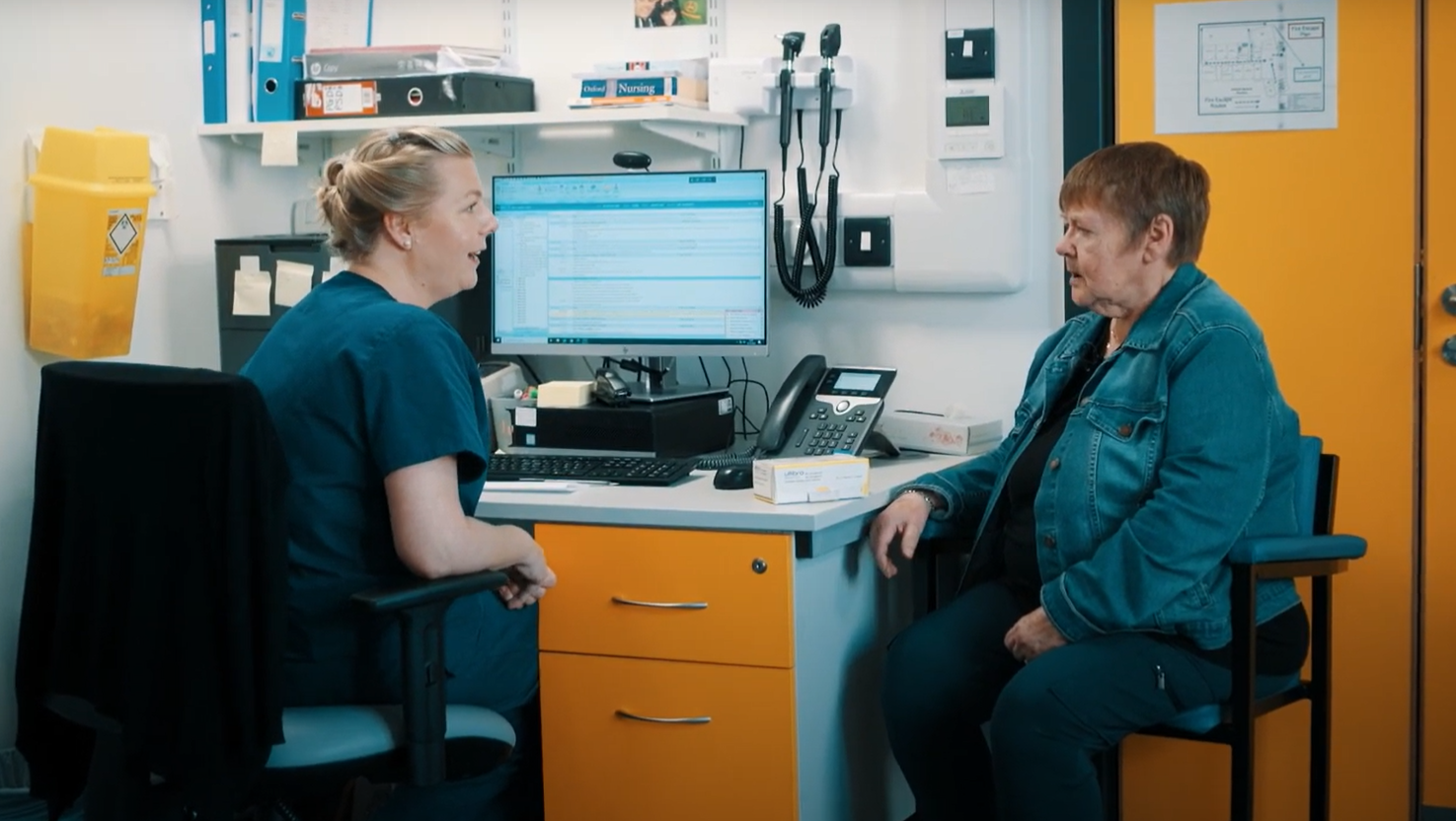Improving lung health and the environment at Kirkholt Medical Centre, Rochdale

The issue
Asthma is the most common respiratory condition in the UK, and Asthma + Lung UK states that 5.4 million people receive treatment yearly. Inhalers are a key treatment for respiratory conditions, with approximately 60 million dispensed in England every year. However, inhalers are not always used in an optimal way, which can lead to poor disease control and avoidable deaths. Overprescribing of reliever (most often salbutamol) inhalers and under prescribing of preventer inhalers have been identified as two drivers of poor outcomes.
Inhaler emissions account for approximately 3% of the NHS carbon footprint. The propellant gases used in Metered Dose Inhalers (MDIs) are responsible for most of these emissions. Alternative options with a significantly lower carbon footprint are available and are clinically equivalent for many patients over the age of 12, such as Dry Powder Inhalers (DPIs) and soft mist inhalers (SMI).
There is an opportunity to tackle both challenges, poor outcomes for asthma and COPD (chronic obstructive pulmonary disease) and reducing carbon emissions, simultaneously, and thereby deliver high quality and low carbon respiratory care.
The move also supports improved patient choice. A study from Asthma + Lung UK (ALUK) indicated that most patients would like the environmental impact of inhalers to be a consideration in treatment choice.
The solution
Kirkholt Medical Centre, a GP surgery in Rochdale, has worked with patients to improve asthma care and reduce the carbon footprint of prescribed inhalers. This was achieved through encouraging lifestyle changes, such as stopping smoking, addressing reliever overuse (salbutamol), encouraging preventer use, and when appropriate supporting a change to dry powder inhalers.
The practice identified patients whose asthma control could be improved through searches on their IT patient record system and invited them for an earlier asthma annual review. During the review, Irma Klein, the practice nurse worked with patients to ensure good inhaler technique, discussed the carbon impact of inhalers and when needed used dummy inhalers and the In-Check DIAL device to find the right inhaler for each patient. The practice nurse discussed the underlying cause for the asthma and how their preventer steroid inhaler works on this. This gave patients confidence in the inhaler and the technique required.
Overreliance on salbutamol was tackled by identifying and inviting patients for early reviews and changing repeat prescriptions times to 90 days with a maximum of three issues before re-authorisation.
Advice was provided to patients about the importance of disposing of inhalers appropriately by returning them to pharmacies for greener disposal.
Dr Francis Collett-White and Irma Klein have delivered a teaching programme to other clinicians and practices in their area on how to improve patients’ outcomes from respiratory conditions alongside reducing the environmental impact of inhalers. This included practicing using dummy inhalers and demonstrations of using an In-Check DIAL device.
The impact
Many patients have reported improved symptom control after their asthma review and have been happy to have an inhaler that works for them and also reduces their environmental impact.
The mean carbon emissions for each salbutamol inhaler has reduced from 23kg per inhaler to 15kg per inhaler from January to August 2022. One hundred and fifty salbutamol inhalers are prescribed every month, on average, so this equates to carbon emission savings of nearly 1500kg CO2e per month; the equivalent of charging 430,000 smart phones. Non-salbutamol pMDI inhalers has reduced from 57.5% to 37% over the same period.
Watch Kirkholt Medical Centre’s video
This video shows how the medical centre has worked with patients to improve asthma care and reduce the carbon footprint of prescribed inhalers.
Over to you!
Do you want to find out more about how to improve respiratory health while reducing the environmental impact of inhalers?
The Greener Practice Network hosts an Asthma Quality Improvement toolkit, guide to inhaler prescribing, and local and national primary care sustainability networks.
You can also sign up to our inhalers FutureNHS workspace for resources, information, and further case studies (log in required).
Please see the Investment and Impact Fund, which incentivises PCNs with four indicators relating to respiratory care and inhalers.
For more information about this initiative, please contact: england.sustainablemedicines@nhs.net
